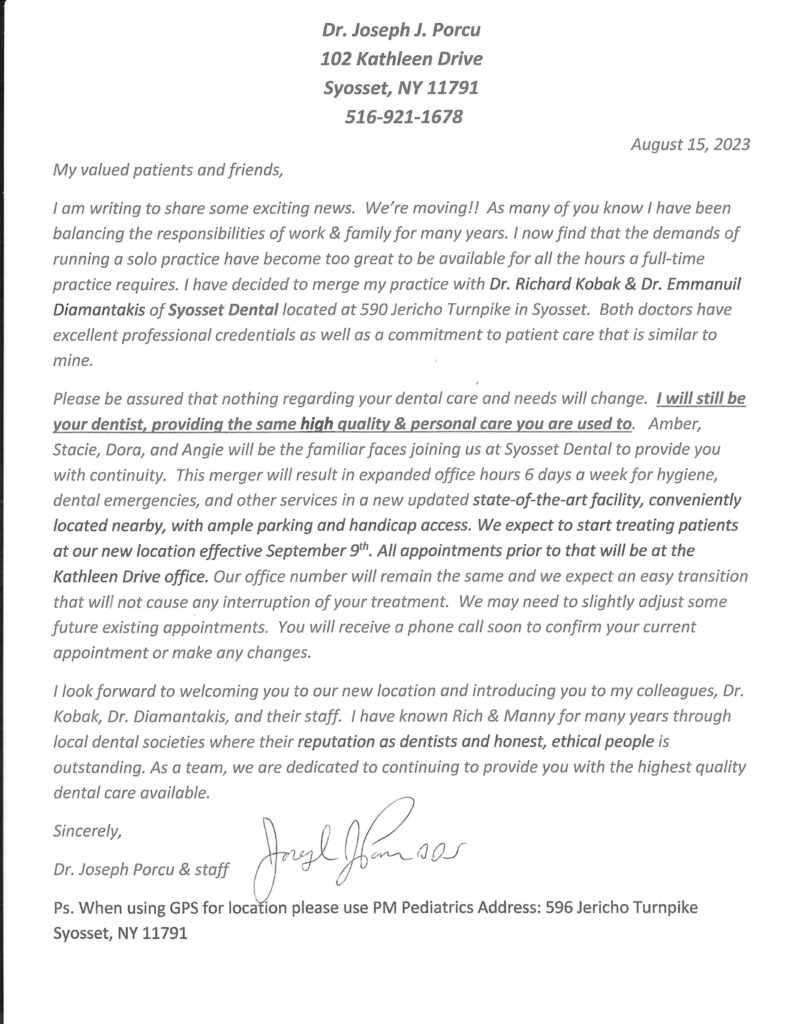 A toothache is never fun, but sometimes, even the best home remedies aren’t enough to treat it. In fact, the time spent trying to alleviate the pain at home may be enough for the toothache, and whatever is causing it, to grow even worse. The only way to effectively treat a toothache is to find out why your tooth hurts and address the underlying issue. In most cases, that means undergoing a careful examination at your dentist’s office, even if it isn’t time for your routine checkup and cleaning appointment yet.
A toothache is never fun, but sometimes, even the best home remedies aren’t enough to treat it. In fact, the time spent trying to alleviate the pain at home may be enough for the toothache, and whatever is causing it, to grow even worse. The only way to effectively treat a toothache is to find out why your tooth hurts and address the underlying issue. In most cases, that means undergoing a careful examination at your dentist’s office, even if it isn’t time for your routine checkup and cleaning appointment yet.
Common Toothache Causes
During your visit, your dentist will thoroughly inspect your teeth and gums to determine what’s behind your discomfort, and then recommend an appropriate treatment plan to alleviate it. Your treatment will depend on the exact cause of your toothache, which may a number of things, such as:
- Something stuck between your teeth—You might not always notice when a piece of your food gets stuck between your teeth. But, as the obstruction puts pressure on one or more teeth, it will eventually cause your teeth to become sensitive. If flossing doesn’t remove it, then visit your dentist instead of trying to force it and potentially damaging your tooth.
- Eroded tooth enamel—When certain oral bacteria come in contact with certain nutrients, like sugar, they can metabolize them into harmful substances that attack and weaken the protective enamel around your teeth. Over time, your enamel can grow too weak to protect main tooth structure underneath from irritants like food particles and oral bacteria. Weak enamel is a precursor to tooth decay, and should be addressed as soon as possible.
- A chipped tooth—If you recently suffered trauma to your tooth, then you might immediately notice that the tooth is chipped. However, a tooth can also chip from constant teeth-grinding or uneven bite pressure, and you might not always notice it unless the tooth becomes sensitive enough to draw your attention. The tooth won’t grow its chipped off piece back, and restoring the tooth’s structure will be the best way to alleviate the sensitivity.
- A dying/dead tooth nerve—When tooth decay develops, a filling can often be placed to stop the cavity from growing and restore the tooth. In rare cases, however, the restoration may fail, allowing the cavity and tooth decay to grow deeper and invade the tooth’s pulp. If the nerves and tissues within the pulp become infected, the discomfort can become severe, and recovering from it could require endodontic (root canal) treatment to remove the internal infection.
Don’t Put Up with a Chronic Toothache
If your tooth hurts, then find out why so you can treat it before it grows worse. To learn more, schedule a dental consultation by calling Syosset Dental in Syosset, NY today at 516-433-2211 or 516-921-1678.











